
by logisticsplus | Jan 25, 2017 | News
FOR IMMEDIATE RELEASE
Logistics Plus Supply Chain Solutions Receives AS9120B Certification
Quality Management Systems Meet Standards Required to Service the Aerospace Industry.
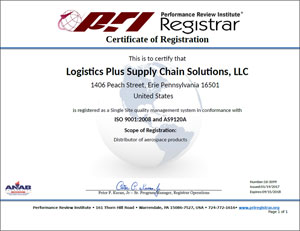 ERIE, PA (January 25, 2017) – Logistics Plus Inc., a leading worldwide provider of transportation, logistics and supply chain solutions, is proud to announce its Supply Chain Solutions division has received ISO 9001:2015 and AS9120B certification. The AS9120B Quality Management System standard, published by the Society of Automotive Engineers (SAE), includes the ISO 9001:2015 and specific quality management system (QMS) requirements related to the aerospace industry.
ERIE, PA (January 25, 2017) – Logistics Plus Inc., a leading worldwide provider of transportation, logistics and supply chain solutions, is proud to announce its Supply Chain Solutions division has received ISO 9001:2015 and AS9120B certification. The AS9120B Quality Management System standard, published by the Society of Automotive Engineers (SAE), includes the ISO 9001:2015 and specific quality management system (QMS) requirements related to the aerospace industry.
Based on ISO 9001:2015, but with additional requirements specific to aerospace distributors, the AS9120B provides suppliers with a comprehensive quality system focused on areas directly impacting product safety and reliability, including:
- Improved product quality, traceability and reduced risk
- Alignment with the best practices of the aerospace industry
- Improved audit and surveillance efficiency
- Enhanced traceability and anti-counterfeit measures
“Accreditation from PRI Registrar to the ISO 9001:2015 and AS9120B standards is proof-positive that Logistics Plus is committed to being a major player in the transportation and logistics of parts and components to the aerospace, military and commercial aviation industries,” said Harald Aamodt, aerospace business development manager for Logistics Plus Supply Chain Solutions. “Certification sets us apart in the industry and demonstrates our commitment to quality, continuous improvement and customer satisfaction.”
“Logistics Plus Supply Chain Solutions has demonstrated its commitment to world class quality by implementing and becoming certified to the ISO 9001:2008 and AS9120A standards. They have joined an elite number of organizations worldwide who have achieved certification to this globally recognized quality standard,” said Randy Daugharthy, Director of the Registrar Program at the Performance Review Institute Registrar. “PRI Registrar is proud to partner with Logistics Plus in this accomplishment and look forward to continued support of their objective of excellence within the aerospace industry.”
About PRI Registrar
Since 1995, Performance Review Institute Registrar, a management systems registrar, has helped a multitude of organizations achieve and realize their true potential through the development of management systems and quality systems certification. As an affiliate of SAE International, PRI Registrar is a not-for-profit organization, uniquely motivated with a mission and commitment to raise the bar in any industry it serves. To learn more information, visit www.priregistrar.org or contact PRI Registrar at [email protected].
About Logistics Plus Inc.
Logistics Plus Inc. provides freight transportation, warehousing, global logistics, and supply chain management solutions through a worldwide network of talented and caring professionals. Founded in Erie, PA by local entrepreneur, Jim Berlin, 20 years ago, Logistics Plus is a fast-growing and award-winning transportation and logistics company. With a strong passion for excellence, its 400+ employees put the “Plus” in logistics by doing the big things properly, and the countless little things, that together ensure complete customer satisfaction and success.
###
Media Contact:
Scott G. Frederick
Vice President, Marketing
Logistics Plus Inc.
(814) 240-6881
[email protected]
Click image below to download the Logistics Plus logo:

by logisticsplus | Jan 16, 2017 | News
 Congratulations to Suraj Joshi from Logistics Plus India for being named “Man of the Match” in a recent cricket league game. Suraj scored 65 runs off 28 balls. This is his first “Man of the Match” award of 2017. Usually he wins an award a week (apparently he’s a really good cricket player). Suraj is pictured here on the left receiving his award.
Congratulations to Suraj Joshi from Logistics Plus India for being named “Man of the Match” in a recent cricket league game. Suraj scored 65 runs off 28 balls. This is his first “Man of the Match” award of 2017. Usually he wins an award a week (apparently he’s a really good cricket player). Suraj is pictured here on the left receiving his award.
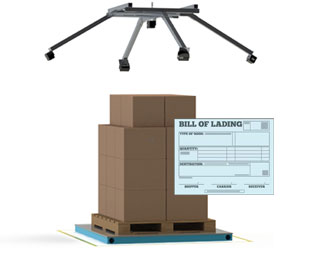
by logisticsplus | Jan 12, 2017 | News
 Bill of lading accuracy is as important as ever. The BOL is a legally required document that must be completed before a freight shipment is hauled. A BOL protects both the carrier and the shipper. The document contains detailed information on the type, quantity and destination of the goods being carried. The issuance of the BOL is proof that the carrier has received the goods from the shipper, or their 3PL, in apparent good order and condition, as handed over by the shipper.
Bill of lading accuracy is as important as ever. The BOL is a legally required document that must be completed before a freight shipment is hauled. A BOL protects both the carrier and the shipper. The document contains detailed information on the type, quantity and destination of the goods being carried. The issuance of the BOL is proof that the carrier has received the goods from the shipper, or their 3PL, in apparent good order and condition, as handed over by the shipper.
Until recently, LTL carriers tolerated some “bending of the rules” regarding accurate freight weights, classifications, and dimensions detailed on the BOL. New tools are helping carriers efficiently and objectively assess freight. Many LTL terminals now use forklifts with embedded scales. Terminals are also using ceiling-mounted systems that measure the dimensions and density of every piece of freight.
As a result of these new technologies, and recent rules tariff changes, carriers are tolerating BOL discrepancies no longer. Today, carriers are pursuing every penny of revenue they can get. LTL carriers, in particular, are strictly enforcing terms and policing discrepancies between reported and actual freight characteristics, leading to many unexpected fees for shippers. Freight descriptions that you may have used for years without problems might start triggering fees if they under-report any aspect of your freight’s true profile.
An accurate bill of lading is your best defense against these “weight & inspection” – or “W&I” – fees, and against possible rate changes resulting from “re-weighs” or “re-classifications.” Make sure to measure the dimensions of your LTL freight, including packaging, to the furthermost point in each direction. Some shippers measure the pallet rather than the freight when calculating dimensions. If the freight overhangs the pallet, the overhang must be included in the measurements.
July 2020 Update: With the NMFC now designating more commodities for density-based classifications, preparing an accurate BOL is as important as ever. If you note the wrong weight for a density-based product on your bill of lading, there is a good chance that the LTL carrier will re-weigh your shipment and charge you the higher rate using the same freight class you designated on your BOL rather than adjusting the freight class according to the new weight and dimensions. Specifically, this is how one carrier has worded their new rules tariff item specific to this situation: “In the case where the weight is changed on a shipment that is a density-based item in NMFC, the freight classification on the original bill of lading will be used unless the shipper or consignee can produce irrefutable supporting documentation showing clear evidence of the LxWxH and corresponding weight of each handling unit of the shipment.”
Logistics Plus stands ready to help shippers any way it can to avoid W&I fees. Our North American (NAD) operations team can provide consultation on accurate NMFC freight classifications and freight density calculations. We notify you whenever a carrier assesses an unintended W&I fee, and we manage the dispute if you have evidence the fee is not valid.
The freight experts at Logistics Plus will be happy to help you with any questions or issues regarding freight characteristics and bill of lading accuracy. Contact us using the button below or email us at [email protected] if you have any of these types of questions.

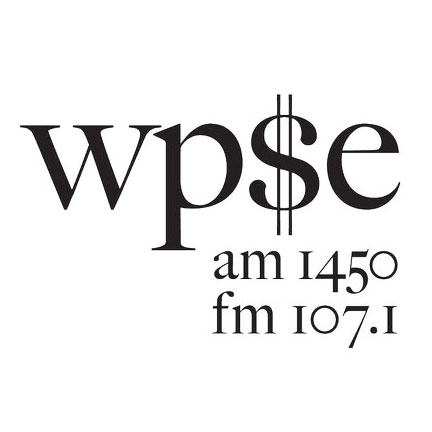
by logisticsplus | Jan 11, 2017 | News
 WP$E Radio continues to air short Logistics Plus interview audio clips as part of its business programming. WP$E AM 1450/FM 107.1 is a commercially licensed radio station serving Erie County, Pennsylvania. The station is owned by the Penn State Board of Trustees, and it is operated by Penn State Behrend, under the direction of professional broadcast staff. In addition to providing a one-stop source for global and financial news, WP$E also airs ongoing commentaries from regional business leaders.
WP$E Radio continues to air short Logistics Plus interview audio clips as part of its business programming. WP$E AM 1450/FM 107.1 is a commercially licensed radio station serving Erie County, Pennsylvania. The station is owned by the Penn State Board of Trustees, and it is operated by Penn State Behrend, under the direction of professional broadcast staff. In addition to providing a one-stop source for global and financial news, WP$E also airs ongoing commentaries from regional business leaders.
Here are some recent WP$E interview audio clips with comments from Jim Berlin, founder and CEO, and Scott Frederick, VP of marketing (click the icons below to listen to the audio replays).

Recent Growth and the WeWork SWAT Team

Union Station Growth and the impact on Downtown Erie

DoorLogistics Intermodal Acquisition

Global Solutions available from a Local Company

Shipping and Warehousing for Amazon Sellers
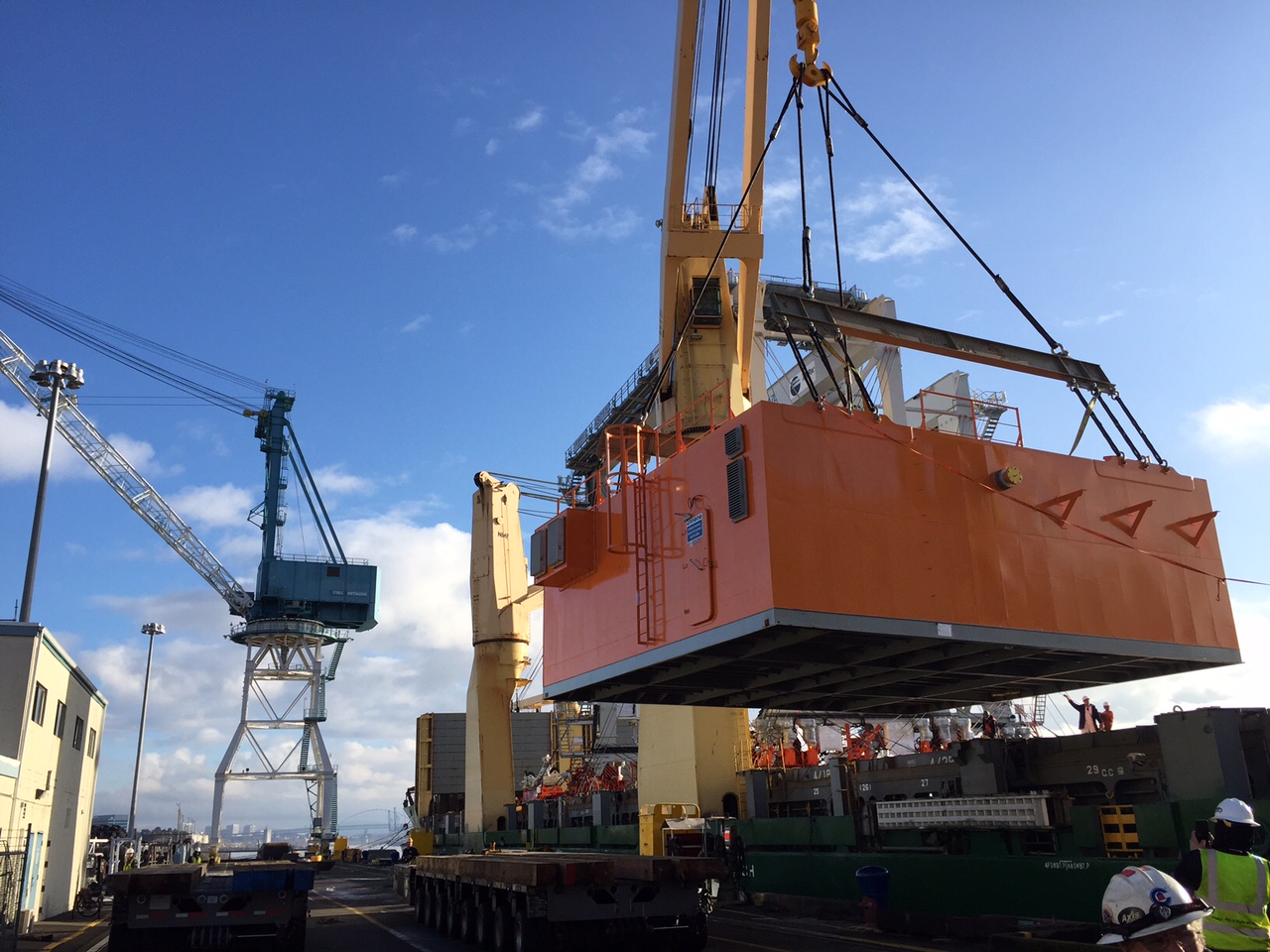
by logisticsplus | Jan 6, 2017 | News
Here are some great photographs, as always, from Frederik Geirnaert showcasing a couple recent logistics projects completed by the Logistics Plus Project Cargo team.
In the first project, Logistics Plus delivered a deck house unit from China to Portland in the U.S. The unit weighed 120 tonnes and measured 13 meters in length, 11 meters in width and 5 meters in height. The project team received the deck house on a barge at the supplier’s facility then shipped to Shanghai. It was loaded aboard a heavy-lift vessel in Qidong in the southeastern Jiangsu province of China and shipped on a free-on-board basis.
In another project, Logistics Plus also completed a recent breakbulk delivery of two complete Vestas V90 turbines from the Netherlands to Finland. This consignment was collected from the client’s site in Eemshaven shipped on a free out basis to Pori, Finland. The turbines weighed a total of 82 tonnes and measured 12 meters in length.
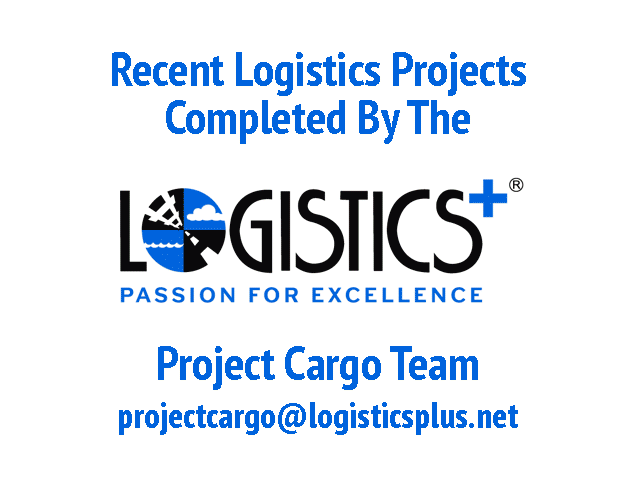

You can read more about these and other projects on our Project Cargo Portfolio page. You can also download, view and share our Project Cargo Portfolio PDF Document by clicking the image below.
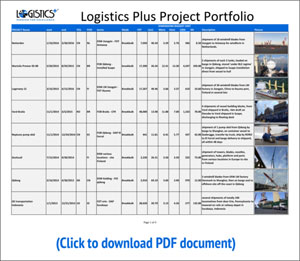
Need help with a unique, heavy-lift or complete logistics project of your own? Let us know!


by logisticsplus | Jan 6, 2017 | News
Logistics Plus CIO, Emile Zafirov, recently participated in an online article from CIO Outlook focused on “Big Data” with the headline Big Data: Changing the Way Logistic Companies Function Today. A clipping of the article is shown below.
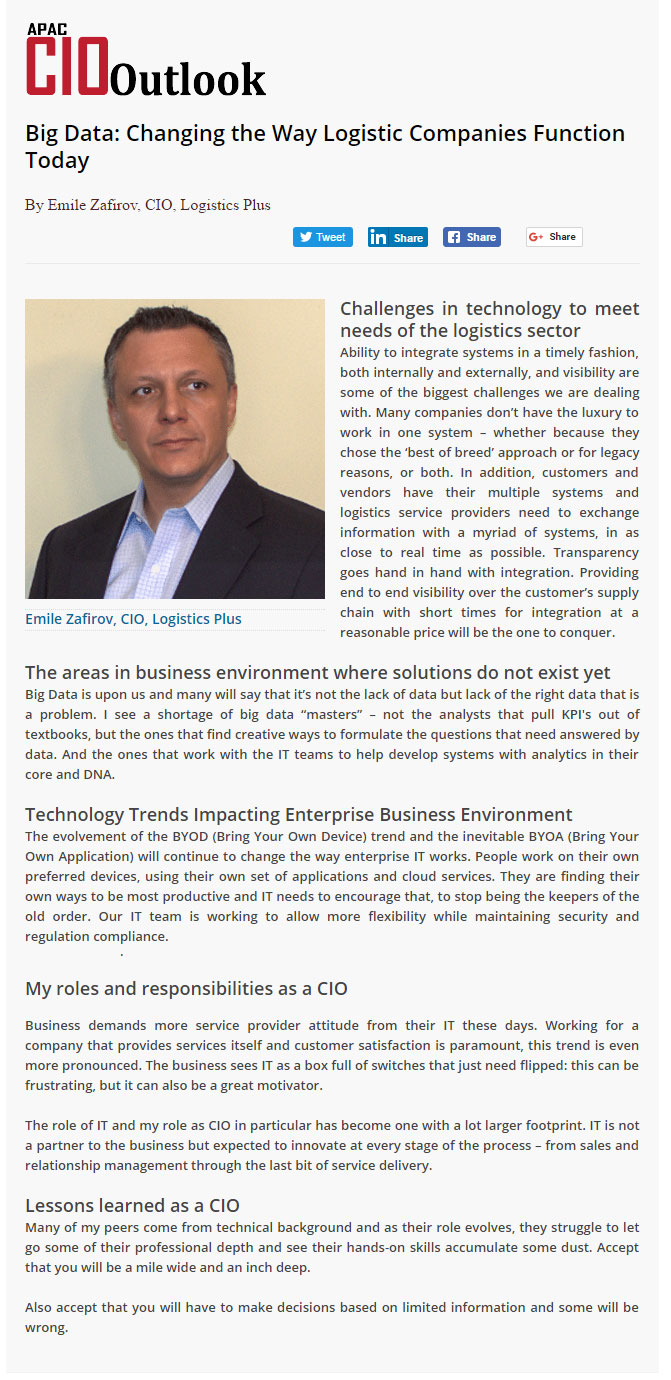

 ERIE, PA (January 25, 2017) – Logistics Plus Inc., a leading worldwide provider of transportation, logistics and supply chain solutions, is proud to announce its Supply Chain Solutions division has received ISO 9001:2015 and AS9120B certification. The AS9120B Quality Management System standard, published by the Society of Automotive Engineers (SAE), includes the ISO 9001:2015 and specific quality management system (QMS) requirements related to the aerospace industry.
ERIE, PA (January 25, 2017) – Logistics Plus Inc., a leading worldwide provider of transportation, logistics and supply chain solutions, is proud to announce its Supply Chain Solutions division has received ISO 9001:2015 and AS9120B certification. The AS9120B Quality Management System standard, published by the Society of Automotive Engineers (SAE), includes the ISO 9001:2015 and specific quality management system (QMS) requirements related to the aerospace industry.

 Congratulations to
Congratulations to 


 WP$E Radio continues to air short Logistics Plus interview audio clips as part of its business programming.
WP$E Radio continues to air short Logistics Plus interview audio clips as part of its business programming. 




